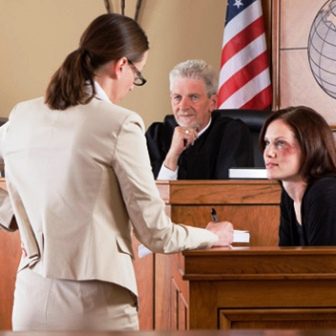
Evidence never gets into court without passing the rules of evidence. Courts admit evidence only when it complies with rules, statutes and case law comprising evidence law. Winning a case requires mastery of the rules of evidence.
Rules vary from state to state and even from court to court. One reason to have a lawyer, among others, is that attorneys are trained in the rules and have access to changes in the rules as they evolve. They evolve each year.
Reliability and credibility in what is presented in a court of law underlie all case law and debate on the rules of evidence.
Where Are The Rules of Evidence?
Federal courts require compliance with the Federal Rules of Evidence. These rules often model as a guide to state and local court rules. However, there are differences. Research of the Federal Rules of Evidence is a good start, but they do not apply in state courts.
What Are The Rules of Evidence?
Among the more important rules, in general, is the inadmissabiliy of hearsay. Hearsay rules fill volumes. Essentially, hearsay prevents a witness from repeating what others have said outside the courtroom, without the opportunity for cross examination, if the truth of the matter in the statement is an issue in the case.
There are many exceptions to the hearsay rule, including statements of a party and something called an “excited utterance” made immediately following an event while the excitement of the event is fresh and unprocessed in the mind.
Other crucial everyday rules that trial attorneys use are relevance, privilege, expert testimony, and the difference between opinion and fact testimony. No evidence or testimony is allowed without foundation, and documents must be authenticated.
Are Rules Of Evidence Followed In All Courts?
There are forums in which the rules of evidence are relaxed or even disregarded. Small claims court, workers compensation panels and many administrative forums usually relax the rules. But, be careful. These tribunals usually have their own administrative rules spelled out in regulations which may or may not be online.
Must I Make Copies Of My Evidence?
When you go to court, you must take copies of all documents. This includes photos. The original goes to the court. Provide copies to the opposing attorney or attorneys. For obvious reasons keep a copy.
If I Represent Myself Do I Have To Follow All Of These Rules?
Yes. Don’t represent yourself in court if you have not fully mastered the rules, statutes and case law on evidence. An individual who sued my clients once fired his attorney and failed to take the time to learn the rules of evidence. I successfully objected to the individual’s evidence, resulting in a victory for my clients and a loss for the unrepresented.
Views: 5




